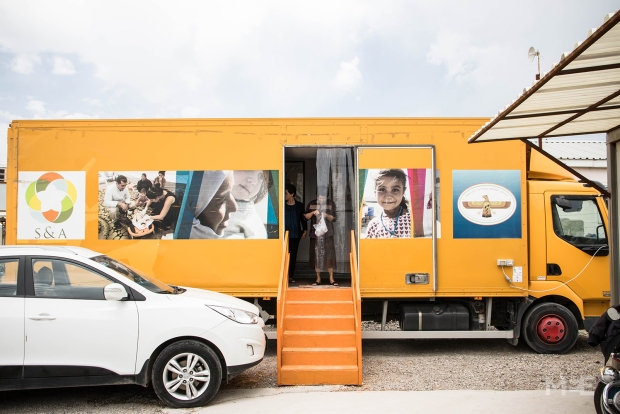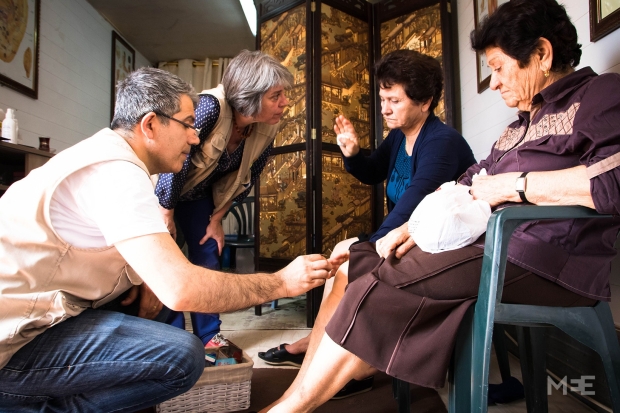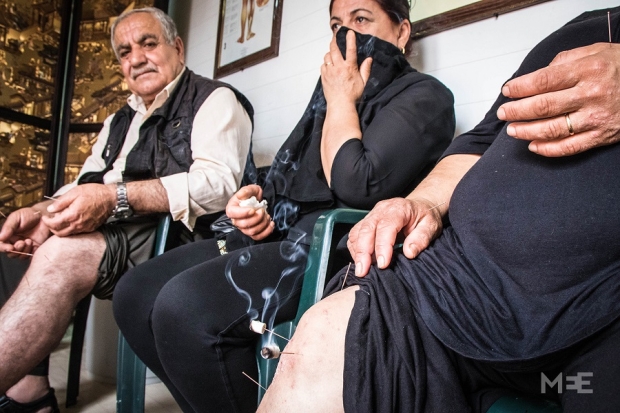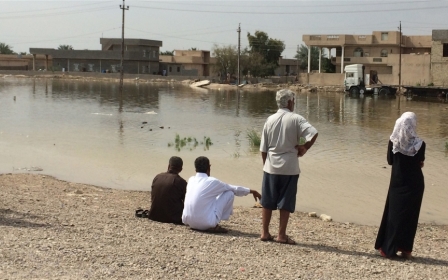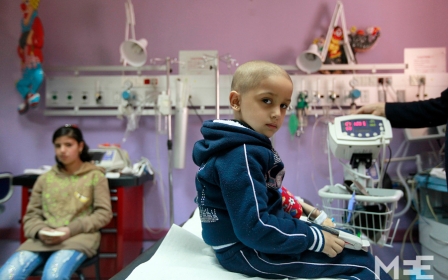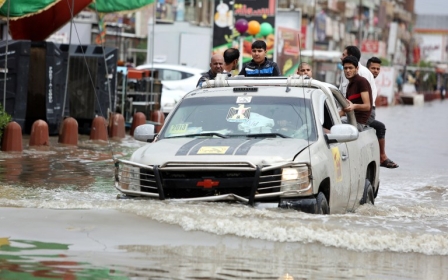Refugees getting the point of Chinese medicine through acupuncture in Iraq
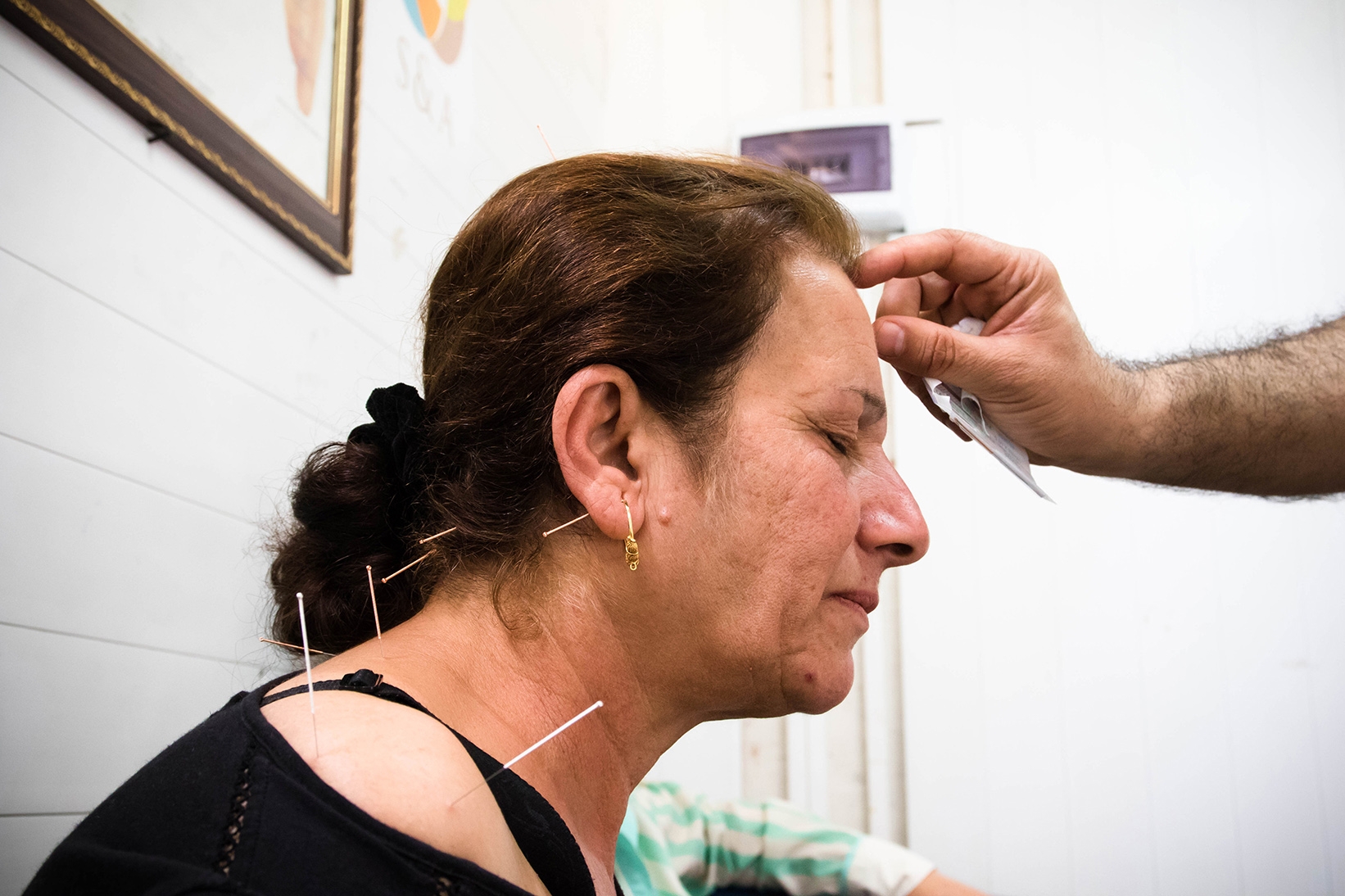
ERBIL, Iraqi Kurdistan - The yellow truck decorated with photographs and posters is an unmistakable landmark in the Ankawa 2 refugee camp in Erbil. Uniquely in Iraqi Kurdistan, it houses the camp's only acupuncture clinic, which serves the 5,500 Christian and Yezidi residents, as well as outsiders who want to benefit from its medical services.
Ankawa 2, which is run by the Assyrian Catholic church, has become a source of pride for its managers and the people who live there. Inaugurated in April 2015, the camp was at first deprived of water and electricity, seemingly abandoned and surrounded by empty tracts of land. At the time, refugees were scattered all around the city, living in church buildings, public parks or malls under construction. Today, the residents of the camp have a school, a church, shops, a football stadium and now even an acupuncture clinic.
Dara Taha, the head of mission of the French non-governmental organisation Shennong and Avicenne, created in 2002 by French physician Elise Boghossian, says Ankawa 2 has become the most important camp in Iraqi Kurdistan. And with the help of funding from individual, corporate and institutional donors, the NGO has brought the benefits of acupuncture to the camp residents.
Opened by Boghossian when the camp first opened its doors to refugees, the clinic receives patients each day from 10am to 4pm. Along with basic care, it offers traditional Chinese medicine, which is mostly characterised by acupuncture. Dr Boghossian and French volunteer doctors aim to help Syrian war refugees and Iraqi displaced people who are recovering from both physical and psychological pain.
The acupuncture clinic's interior walls are covered by posters of the human body, its muscles, meridians and the location of acupuncture points. Two screens that are decorated with Chinese designs offer patients some discretion when they are being treated, and also invite them to immerse themselves in this particular atmosphere where needles and plants have replaced drugs.
During her stay she also heals patients. “Most of the time, people are just exhausted,” she says. “All of their pathologies are linked to exhaustion. Even if they have a place to live and enough food on the table, they cannot get to sleep anymore.”
As Vassail takes her patients pulse, she explains how touch creates communication and procures immediate relief. “Sometimes they are a bit nervous,” says Taha. “Those people have been humiliated, have gone through rough times and lost everything they had. What they experienced has changed their mentality and their understanding.”
But despite this, they choose to trust Boghossian’s team, even if it occurs after researching the topic. “I looked it up on the internet because I had never heard of such a practice and I was scared,” admits Alya, an Iraqi woman from Mosul who suffers from back pain and is in for her third session. Grateful for the kindness of the staff, she assures everyone that she is feeling much better and is thankful for the free medical services at her disposal. “The first session was wonderful, I left from the second one with a sore neck, but after the third session today I just feel good.”
Most of the staff are comprised of people who are themselves refugees or displaced. They were doctors, nurses, paramedics or pharmacists in their country of origin. For Vassail, training and hiring refugees is one of the fundamental principles established by the organisation. Head of mission Taha also falls into this category and confirms that it is a huge asset. “I know all the cultures, what the people think and what they need. Sometimes they are angry, because they think they lost their dignity. But we are there for them.”
The programme also gives staffers a source of income, an important step in building a new life and restoring self-esteem lost in war and trauma.
Mostafa was one of the first people to follow Boghossian and Vassail’s training and is now the main practitioner at Ankawa. A former pharmacist from Kobane in northern Syria, his diplomas are not recognised in Kurdistan. But he has always been drawn to herbs and oriental medicine, therefore learning Chinese medicine came very naturally to him. In loving what he does, he reads as much as he can on the topic and confides that “relationships are different here. It’s not a doctor-patient one, but rather a fraternal one. And most of them are from Mosul, so we talk a lot about their life.”
Despite the hustle and bustle of camp residents exchanging life tips and engaging in chatter, Mostafa and Vassail manage to insert the required needles on their patients that will stimulate energy points and relieve pain. “The clinic has got a reputation outside of the camp because it proved itself successfully,” Vassail says proudly.
Rose, from Aleppo, who came for her first visit for knee and leg pain, agrees. She found out about the clinic by word of mouth even though she lives in a house outside the camp in a different area of Erbil. Though acupuncture is an non-traditional way of taking care of war victims, news about its positive results has spread quickly and when organisations on the ground run out of painkillers, demand grows.
Basma, from Karakosh, was among the first patients to benefit from the clinic for her migraines and back pain, which have now disappeared. Since then she has never hesitated to recommend it to others who suffer from health issues.
In the pharmacy, Taha points to the shelves which are half-emptied. “Chinese therapy changed the life of the camp. People presenting chronic diseases do not need medications anymore. This saves a big part of the budget.”
Taha has been working in the humanitarian sector for 14 years, mainly for Doctors Without Borders. He says that funding has dramatically decreased for NGOs and sometimes organisations are completely cut off from financial sources. At the same time, more and more people depend on international aid because of conflicts or natural disasters.
Taha sees acupuncture not only as a viable alternative, but as a necessity.
“When Elise first talked to me early 2015 about her project, I was not sure whether it would last because of the lack of money. Then it became achievable,” says Vassail.
For future endeavours, the team is now talking about opening a gynaecological unit. A gynaecologist already works at the clinic, but she is consumed by the high number of anaemic women presenting themselves at the clinic for help.
Besides the obvious medical and financial benefits of Shennong and Avicenne’s approach, an often forgotten aspect is highlighted: the fact that behind a smaller pain, severe psychological or physical trauma may be at the origin.
As Vassail explains: “After my first trip abroad as a volunteer doctor which was in Laos, I thought back in Paris that I would never again want to take care of patients with a simple headache. But actually, I realised what suffering was.”
New MEE newsletter: Jerusalem Dispatch
Sign up to get the latest insights and analysis on Israel-Palestine, alongside Turkey Unpacked and other MEE newsletters
Middle East Eye delivers independent and unrivalled coverage and analysis of the Middle East, North Africa and beyond. To learn more about republishing this content and the associated fees, please fill out this form. More about MEE can be found here.


